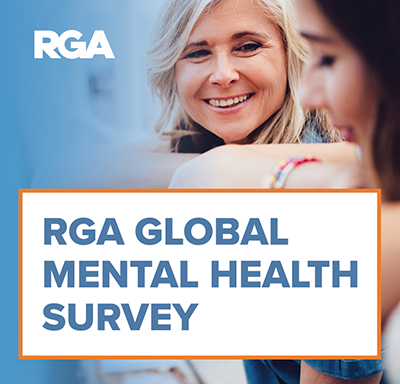Dr. Peter Farvolden joined RGA as a Mental Health Consultant in August 2023. As a member of RGA’s Global Medical team, Dr. Farvolden collaborates with RGA teams around the world to provide clients with insights and strategies around mental health – part of RGA's commitment to address this growing need. He has 25 years of experience as a clinical psychologist and served for years as a researcher and clinic head at Toronto’s Centre for Addiction and Mental Health, Canada’s largest mental health teaching hospital. Dr. Farvolden talks about his research into temperament and personality, his experience with workplace mental health approaches, and why he was drawn to the intersection of insurance and mental health.
What inspired you to pursue a career in psychology and what do you enjoy most about working in the field of mental health?
I grew up in a family of math-obsessed engineers but ended up going in the opposite direction. At university, I first studied philosophy and ethics, which led to an interest in theories of cognition and neuroscience, and then eventually into clinical psychology. I was fascinated by the complexity of the questions and the insights of my teachers and mentors.
I’ve been lucky to work nearly my entire career as a dual scientist-practitioner. As a practitioner, I’ve enjoyed engaging and satisfying clinical work with patients to solve their individual problems. As a scientist, I have collaborated with research teams to try to better understand how basic temperament and personality processes contribute to psychopathology and resiliency.
What has been the focus of your research around mental health?
Overall, my work has focused on increasing access to effective evidence-based treatments and determining which interventions work best for whom and when.
At the Centre for Addiction and Mental Health (CAMH), I started researching personality and psychopathology to better understand the role of basic temperament and personality factors in the onset of and recovery from mood and anxiety disorders. All of us are born with a temperament, a way of being in the world. That disposition then interacts with outside factors – family, society, culture – to create our personality. My teams looked upstream to study the role of our basic temperaments in predicting mental illness, individual resiliency, and recovery outcomes.
In 2001, in the early years of the internet, I led research on web-based moderated self-help programs for smoking cessation, alcohol use, depression, and anxiety. This eventually led to the development of the MindBeacon iCBT (internet cognitive behavioral therapy) platform, which is now one of Canada’s leading providers of digital therapy treatments.
I also ran the Psychological Trauma Program at CAMH for many years, which at the time was the specialty PTSD clinic for the Ontario Workplace Safety and Insurance Board (WSIB). Many of our patients worked in construction, manufacturing, and other heavy industries, or were first responders. They had suffered devastating physical injuries and were frequently struggling with psychological injuries, too. This is where I really started to appreciate the mind-body connection, disability management and workplace mental health.




